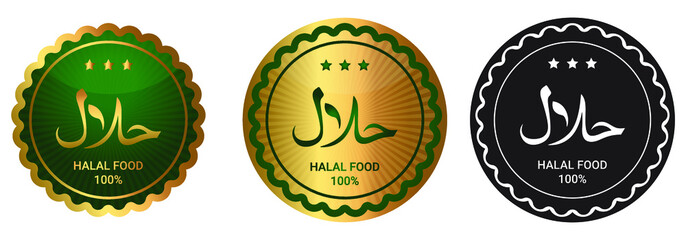The halal food market: significance, opportunities and certification

Examining the importance of halal food in the U.S. and beyond
The halal food market is of significant importance globally, driven by various factors, including religious dietary requirements, a growing Muslim population, and increased consumer awareness about halal products.
Global spending by Muslim consumers is projected to reach USD 2.4 trillion by 2024 — of which USD 1.38 trillion is forecast to be spent on the halal food industry.
Here are some key aspects to consider regarding the importance, opportunities, and certification in the halal food market:
Religious Significance
Halal, permissible or lawful in Arabic, is fundamental in Islam. Muslims must consume only halal food and beverages per Islamic dietary laws. This religious significance ensures a consistent demand for halal products among Muslims worldwide.
Growing Muslim Population
The global Muslim population is steadily increasing, creating a substantial consumer base for halal products. This demographic trend presents long-term growth opportunities for businesses catering to halal food preferences.
Diverse Consumer Base
Halal food is not limited to Muslims alone. Many non-Muslim consumers also prefer halal-certified products due to the perception of higher quality, hygiene, and ethical standards associated with halal food. This extends the potential market reach beyond the Muslim population.
Export Opportunities
The halal food market offers significant export opportunities for countries and businesses that meet halal certification requirements. Many non-Muslim-majority countries export halal products to Muslim-majority nations, contributing to their economies.
Certification and Quality Assurance
Halal certification ensures food products adhere to Islamic dietary guidelines. Obtaining halal certification is crucial for businesses looking to tap into the halal market. It involves rigorous inspections and audits to guarantee compliance with halal standards.
Global Standards
Various countries and organizations have developed their halal certification standards. However, efforts are being made to establish unified global halal standards to simplify certification processes and enhance market access.
Halal Tourism
The halal food market is not limited to food products alone. The halal tourism industry, which includes halal-friendly hotels and restaurants, is also growing. This presents opportunities for businesses in the hospitality sector.
Innovation and Product Development
There is room for innovation in the halal food market, such as developing new products, convenience foods, and healthier options that meet the diverse tastes and preferences of consumers.
Ethical and Sustainable Practices
Muslim and non-Muslim consumers are increasingly concerned about ethical and sustainable food production. Businesses can leverage this trend by promoting halal products as they meet these criteria.
The halal food market is essential due to its religious significance, growing Muslim population, and appeal to a diverse consumer base. Consequently, this offers opportunities for businesses to tap into a global market and requires adherence to rigorous certification standards to ensure compliance with Islamic dietary laws.
The market’s growth potential extends beyond traditional food products to the hospitality and tourism sectors, making it a dynamic and evolving industry.
TradeTrans is here to help
TradeTrans is here to help you dive deeper into what makes this an attractive sector to F&B businesses. Our vast network can also help you navigate halal standards and certification. Let’s connect today.
